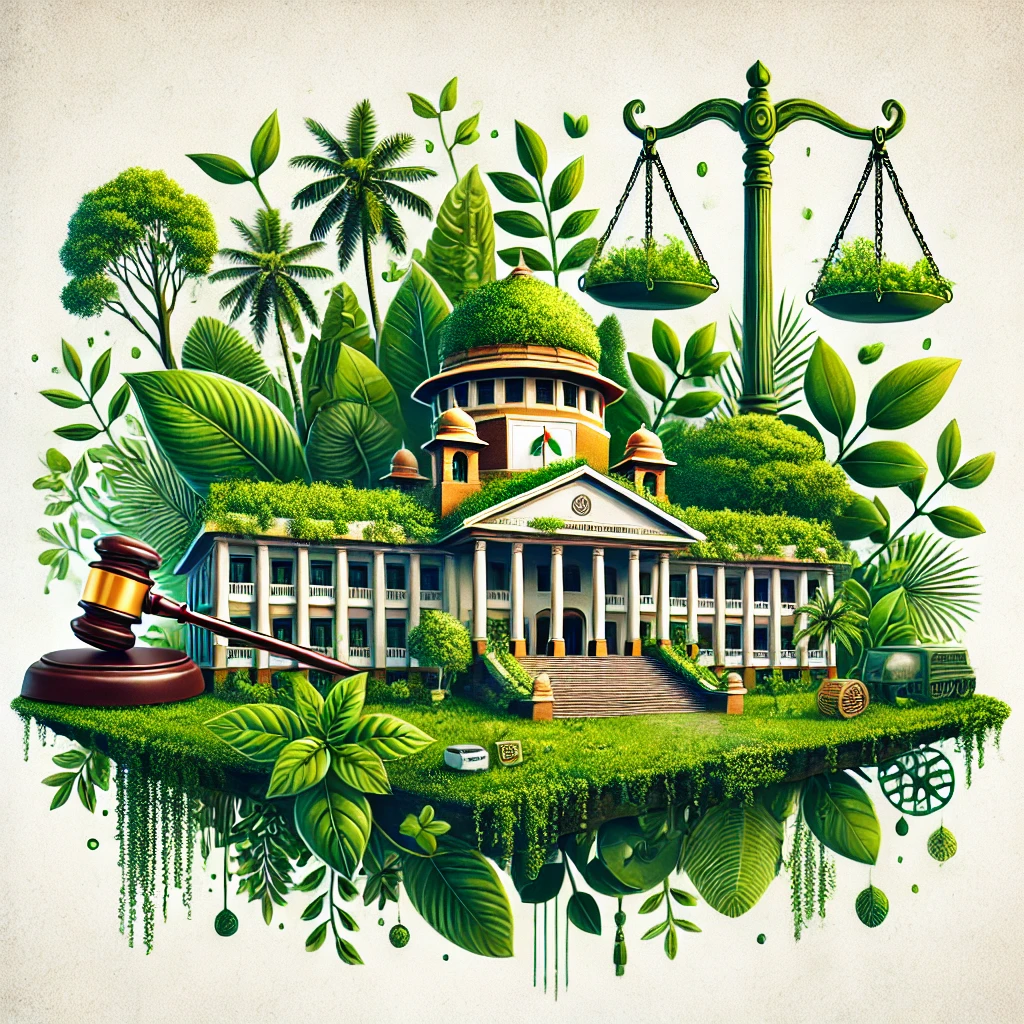Environmental laws at Jordan
Jordan has developed a comprehensive set of environmental laws to address the various challenges it faces in terms of water scarcity, pollution, waste management, and biodiversity conservation. The country has made significant efforts to establish legal and institutional frameworks to promote sustainable environmental practices. Below is an overview of the key environmental laws and regulations in Jordan:
1. The Jordanian Constitution (1952)
The Jordanian Constitution doesn’t explicitly address environmental protection, but it serves as the foundation for laws and policies that later support environmental governance.
The Constitution does, however, outline the protection of natural resources and the duty of the state to safeguard the well-being of the citizens, which includes environmental health.
2. The Environment Protection Law (2006)
The Environmental Protection Law (No. 52 of 2006) is the cornerstone of Jordan’s environmental legislation and serves as the primary framework for environmental protection and sustainability.
Key provisions include:
General Duty of Protection: The law places a general duty on all individuals, organizations, and governmental bodies to avoid damaging the environment.
Environmental Impact Assessment (EIA): The law requires that significant development projects undergo an Environmental Impact Assessment (EIA) before proceeding. The assessment evaluates potential environmental impacts and proposes mitigation measures.
Pollution Control: The law includes provisions to regulate and reduce environmental pollution, especially air, water, and soil pollution. It provides a framework for setting environmental standards for pollutants and emissions.
Permits and Licenses: Industrial facilities and other activities that may cause environmental harm are required to obtain permits from the Ministry of Environment (MoE), which sets conditions for operation to mitigate environmental impacts.
Environmental Standards: The law includes a set of environmental quality standards for air, water, and soil to ensure the protection of the public and ecosystems.
3. The Ministry of Environment (MoE) Law (2003)
The Ministry of Environment Law (No. 57 of 2003) established the Ministry of Environment (MoE), which is responsible for environmental planning, policy development, enforcement, and coordination of environmental issues in Jordan.
Key functions of the MoE include:
Developing and implementing environmental policies and strategies.
Monitoring environmental quality and ensuring compliance with environmental standards.
Supervising and enforcing environmental laws and regulations.
Raising public awareness about environmental issues.
4. Water Authority Law (1988)
Given Jordan's acute water scarcity, the Water Authority Law (No. 18 of 1988) regulates water resources and governs the management of both surface and groundwater in the country.
Key features include:
Water Resource Management: The law provides for the sustainable management and allocation of water resources, including drinking water, irrigation, and industrial use.
Pollution Control in Water: The law emphasizes the prevention of pollution of water bodies and mandates the treatment of wastewater before discharge into water sources.
Water Usage Licensing: It requires a license for activities that involve the extraction or use of water to ensure sustainable consumption and prevent overuse.
5. The Waste Management Law (2007)
The Waste Management Law (No. 16 of 2007) provides a framework for waste disposal, reduction, recycling, and management in Jordan.
Key provisions of the law include:
Waste Classification: The law requires waste to be classified into categories (e.g., municipal, industrial, hazardous, medical, etc.) and sets different disposal and recycling methods for each type.
Waste Collection and Disposal: It mandates that municipalities establish waste collection systems, and it sets requirements for the proper disposal of solid and hazardous waste.
Recycling Programs: The law encourages the recycling of materials such as plastics, glass, and paper, and supports the creation of recycling facilities.
Penalties for Violations: The law establishes penalties for improper waste disposal, including fines and legal actions.
6. The Air Pollution Law (1995)
The Air Pollution Law (No. 7 of 1995) addresses air quality and pollution in Jordan, particularly from industrial emissions, transportation, and power generation.
Key provisions include:
Air Quality Standards: The law sets air quality standards for pollutants like particulate matter, nitrogen oxides, sulfur dioxide, and carbon monoxide.
Emission Controls: It regulates emissions from factories, vehicles, and other sources and requires industries to install pollution control technologies.
Monitoring and Enforcement: The law authorizes the Ministry of Environment to monitor air quality and enforce compliance with emission standards.
7. The Jordanian Forest Law (2002)
The Jordanian Forest Law (No. 13 of 2002) provides a legal framework for the conservation, protection, and sustainable management of forests and natural areas in Jordan.
Key provisions include:
Forest Protection: The law establishes rules for protecting forests from illegal logging, grazing, and other activities that could harm forest ecosystems.
Sustainable Management: It encourages sustainable forest management practices, including reforestation and afforestation programs.
Wildlife Conservation: The law also includes provisions for the protection of wildlife habitats within forested areas, and prohibits hunting of endangered species.
8. The Renewable Energy and Energy Efficiency Law (2012)
Jordan has made efforts to increase the use of renewable energy through the Renewable Energy and Energy Efficiency Law (No. 13 of 2012).
Key features of the law include:
Promotion of Renewable Energy: The law aims to increase the contribution of renewable energy (such as solar and wind power) to Jordan’s energy mix.
Energy Efficiency Standards: It promotes energy efficiency measures across industries, transportation, and households to reduce energy consumption and environmental impact.
Incentives and Funding: The law provides financial incentives, such as subsidies and tax exemptions, for individuals and companies that invest in renewable energy technologies.
9. The Protection of Agricultural Land Law (2008)
The Protection of Agricultural Land Law (No. 25 of 2008) focuses on preserving Jordan’s agricultural land from urban sprawl, industrialization, and land degradation.
Key provisions include:
Land Zoning and Planning: The law regulates land use to protect agricultural lands from being converted into non-agricultural purposes, such as urban development.
Soil Conservation: It includes measures for combating soil erosion and promoting sustainable agricultural practices to protect land productivity.
Land Use Permits: Activities that could impact agricultural land require permits from the relevant authorities, and land conversion is highly regulated.
10. The Nature Reserves Law (1966)
The Nature Reserves Law (No. 2 of 1966) regulates the establishment and management of protected areas in Jordan.
Key provisions include:
Creation of Protected Areas: The law allows the establishment of nature reserves and national parks to protect Jordan's biodiversity, including rare species such as the Arabian oryx and Nubian ibex.
Wildlife Protection: It ensures the protection of wildlife and their habitats, prohibiting hunting and other activities that could threaten species and ecosystems within these reserves.
Sustainable Tourism: The law promotes eco-tourism in protected areas to balance conservation with economic development, especially through tourism activities.
11. The Industrial Investment Law (2000)
The Industrial Investment Law encourages industrial development in Jordan while ensuring that industrial activities adhere to environmental standards.
Key provisions include:
Environmental Compliance: The law requires industries to comply with environmental laws related to air and water pollution, waste management, and energy use.
Environmental Licensing: Industrial projects must obtain environmental permits before commencing, ensuring that their operations do not harm the environment.
12. International Environmental Commitments
Jordan is a party to several international environmental treaties:
The Paris Agreement: Jordan is committed to addressing climate change through emissions reductions and the implementation of climate adaptation strategies.
The Convention on Biological Diversity (CBD): Jordan works toward conserving its biodiversity and promoting sustainable use of natural resources.
Ramsar Convention: Jordan is a signatory to the Ramsar Convention on Wetlands, aiming to protect its vital wetland ecosystems.
The United Nations Framework Convention on Climate Change (UNFCCC): Jordan is engaged in global efforts to mitigate the impacts of climate change.
Enforcement and Challenges
Enforcement: The Ministry of Environment (MoE) is responsible for enforcing the country's environmental laws, including monitoring pollution, conducting inspections, and ensuring compliance with regulations.
Challenges:
Water Scarcity: Jordan faces severe water scarcity, requiring efficient management of its water resources and the treatment of wastewater.
Urbanization: Rapid urban growth and industrial development pose risks to biodiversity, agricultural land, and natural resources.
Pollution: Air, water, and soil pollution are significant concerns, especially in urban areas and industrial zones.
Climate Change: Jordan is vulnerable to the impacts of climate change, such as desertification and increasing temperatures, which exacerbate existing environmental challenges.
Conclusion
Jordan has established a strong legal and regulatory framework for environmental protection, focusing on sustainable resource management, pollution control, and biodiversity conservation. However, the country faces significant challenges, including water scarcity, pollution, and the impacts of climate change, which require continued efforts in enforcement, public awareness, and innovative solutions. Effective implementation of environmental laws, along with international cooperation, will be crucial for ensuring the long-term sustainability of Jordan’s environment.












comments